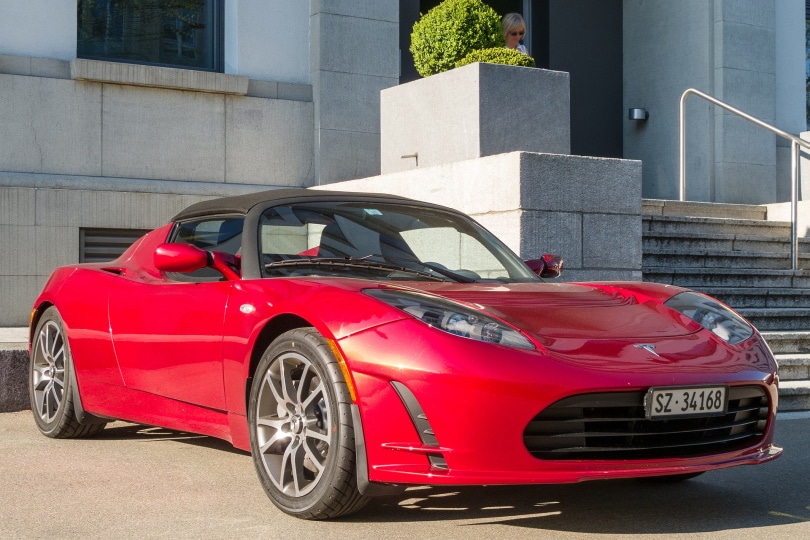How Many People Lease Cars in the US (2025 Update)
-
Pete Ortiz
- Last updated:

Leasing vehicles has grown in popularity over the last three decades. You can benefit from getting a more reliable car at lower monthly costs. However, you don’t get to own the vehicle outright unless you decide to buy it at the end of the leasing period.
Despite this drawback, leasing has become more popular since it is a more financially wise decision for those who are tight on money and can’t afford monthly payments associated with buying the vehicle. Because leasing has become prevalent, you may wonder how many people lease cars in the US.
In this article, we’ll provide the answer and look at how current events have impacted leasing vehicles over the past year.
 How Many People Lease Cars in the US?
How Many People Lease Cars in the US?
The leasing industry was undoubtedly affected by COVID-19. Statista estimates that one in four vehicles are leased in the United States today. To put that in perspective, it was estimated that one in three vehicles were leased before COVID-19, with California being one of the top states for vehicle leasing.
According to Finances Online, 286.9 million registered vehicles are in the United States. If you do the math, that means about 71,725,000 vehicles are leased. This gives you a good idea of how many vehicles on the road are leased.

Why Isn’t Leasing as Popular as Buying the Car Outright?
Out of all the purchased vehicles, only 25% are purchased with a leasing agreement. This is because many Americans prefer to buy their vehicle outright. Even though it is more expensive, the vehicle will be their property once completely paid off.
Still, not everyone cares about owning their vehicle or can’t afford to do so. Instead, consumers want a reliable and more affordable vehicle. That is where leasing comes in, but fewer people fall into this category than in previous years.
How Has Covid-19 Impacted Leasing Vehicles in the US?
It’s impossible to talk about the leasing industry without discussing the impact of COVID-19. COVID-19 had a staggering impact on the auto industry, including the leasing industry. It is estimated that the industry has decreased by 20.6% compared to the years before COVID-19, specifically from 2017 through 2019.
In fact, the leasing industry hit an all-time high in 2019. The leasing market was worth $28.83 billion that year. By 2020, the amount had decreased to $22.41 billion. This was an unprecedented decrease that no one was expecting.
The microchip shortage is the primary reason leasing vehicles decreased so dramatically during COVID-19. It has increased the cost of vehicles by about 20%. Hence, fewer people want to purchase or lease new vehicles.
Not to mention, not as many people needed vehicles during the pandemic. Due to stay-at-home mandates and working-from-home protocols, most people did not need to buy a new car or even lease one.
- Related Read: 10 United States Car Sales Statistics

How Does the Future for Leasing Cars Look?
Currently, the future for leasing cars looks like it will eventually pick up, but it might not be as soon as many hope. Unfortunately, there is still a microchip shortage for new vehicles. As a result, leasing vehicles looks like it won’t be as popular as in 2019.
It is estimated that leasing vehicles will come back on the rise. According to Fortune Business Insights, the market is expected to grow by about 7.8% CAGR from 2022 to 2028.
This means that leasing vehicles might not be as popular in the year to come, but it should make a comeback as the nation and globe bounce back from COVID-19, and the microchip shortage is resolved.
 Final Thoughts: Leasing in the US
Final Thoughts: Leasing in the US
Because of COVID-19, which led to the microchip shortage and stay-at-home mandates, fewer people are leasing vehicles than before. With fewer vehicles on the lots, fewer leases are being signed. Still, it is estimated that 25% of vehicles in the United States are leased, resulting in about 72 million vehicles.
It will be interesting to see how the leasing industry changes this year and in years to come. Hopefully, the microchip shortage will be straightened out soon, resulting in more vehicles on the lots and more leasing agreements being signed.
Featured Image Credit: Pixabay
Contents

 How Many People Lease Cars in the US?
How Many People Lease Cars in the US?